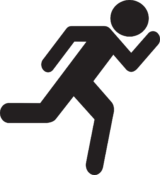What Happens During a Doctor’s Visit for a Head Injury? 🤕
Head injuries can be alarming and often necessitate a visit to the doctor. Whether it’s a bump or something more serious, knowing what to expect during the visit can ease anxiety. Let’s explore what typically happens during a doctor’s appointment for a head injury.
Table of Contents
1. Initial Assessment: The First Steps 🚑
2. Questions the Doctor Will Ask 🤔
3. Physical Examination: What to Expect 🩺
4. Diagnostic Tests: When Are They Necessary? 🧠
5. Treatment Options and Recommendations 💊
6. Conclusion: Taking Care of Your Noggin 💡
7. FAQ: Your Questions Answered 🙋♂️
Initial Assessment: The First Steps 🚑
When you first arrive at the doctor’s office, the initial assessment usually begins with a triage nurse or medical assistant. They’ll check your vital signs, such as blood pressure, heart rate, and temperature. This helps determine the severity of the injury and prioritizes immediate care needs.
Questions the Doctor Will Ask 🤔
Doctors will ask a series of questions to understand the circumstances around the injury. These may include:
• How did the injury occur?
• Did you lose consciousness?
• Are you experiencing symptoms like nausea, dizziness, or headaches?
• Have you had previous head injuries?
These questions help the doctor evaluate the risk of concussion or other serious conditions.
Physical Examination: What to Expect 🩺
During the physical examination, the doctor will check for visible signs of injury, such as bruising or swelling. They may evaluate your neurological function by checking your reflexes, strength, and coordination. Don’t worry; these tests are typically painless and quick!
Diagnostic Tests: When Are They Necessary? 🧠
Depending on the severity of your symptoms, the doctor might recommend further diagnostic tests:
• **CT Scan**: To rule out serious injuries like skull fractures or bleeding.
• **MRI**: If there are ongoing symptoms or concerns about brain damage.
• **X-ray**: Less common for head injuries but may be used if neck injury is suspected.
Treatment Options and Recommendations 💊
The treatment plan will depend on the diagnosis:
• **Rest and Observation**: For minor injuries, rest and monitoring symptoms at home may be sufficient.
• **Medication**: Pain relievers or anti-nausea drugs may be prescribed.
• **Follow-up Appointments**: For severe injuries, regular check-ups ensure recovery is on track.
Conclusion: Taking Care of Your Noggin 💡
Head injuries should never be taken lightly. Understanding what happens during a doctor’s visit can help you feel more prepared and less anxious. Remember, the most important part is taking care of yourself and following the doctor’s advice for a speedy recovery.
FAQ: Your Questions Answered 🙋♂️
Q1: How soon should I see a doctor after a head injury?
A1: It’s best to seek medical attention immediately, especially if you experience symptoms like confusion, vomiting, or loss of consciousness.
Q2: Can I go to sleep after hitting my head?
A2: While it’s an old myth that you shouldn’t sleep, it’s crucial to monitor symptoms closely. If in doubt, consult a doctor.
Q3: What signs indicate a serious head injury?
A3: Symptoms like severe headaches, repeated vomiting, seizures, or difficulty waking up require immediate medical attention.
Q4: Is it safe to drive after a head injury?
A4: It’s advisable to avoid driving until you have been cleared by a healthcare professional, as your cognitive and physical abilities may be impaired.
Taking the time to understand what to expect during a doctor’s visit can make the experience less daunting. Always prioritize your health and follow professional advice for the best outcomes. Stay safe! 😊

